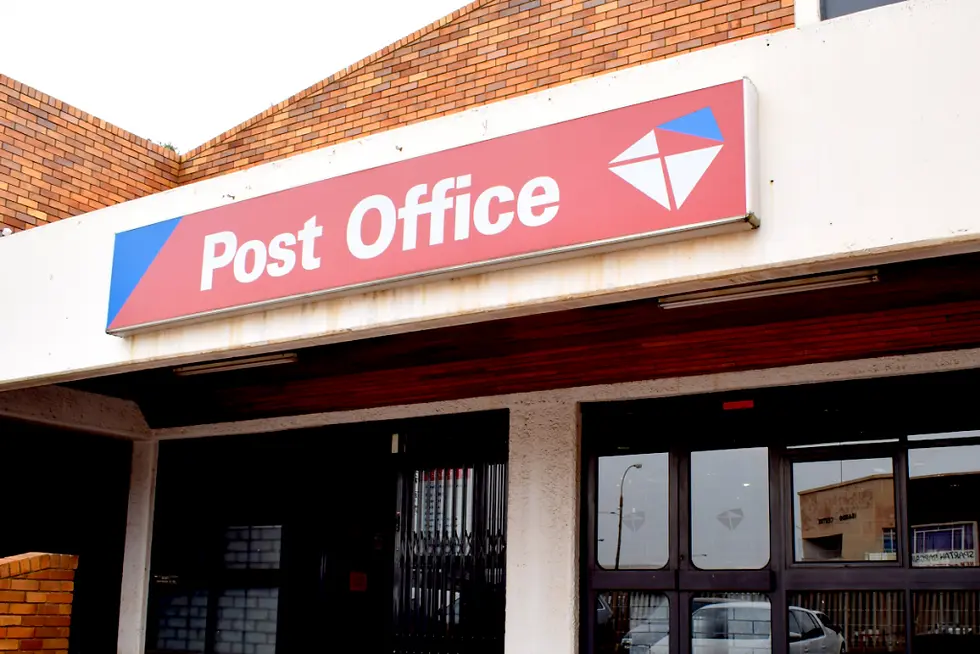
For more interesting daily articles on business go to Business - BusinessTech
Parliament’s Portfolio Committee on Communications and Digital Technologies has welcomed actions being taken by the Department of the Communications and Technologies (DCDT) to try and save the South African Post Office (Sapo).
However, some in the Committee have rebuked equations to “privatisation” as the answer.
Recently, the Department of Communications and Digital Technologies (DCDT) revealed that it is exploring partial privatisation of the Sapo to modernise and boost competitiveness, and ensure long-term sustainability.
Minister Solly Malatsi said that the department has requested National Treasury’s support to form a task team for finding private financial and operational partners. “This will enable serious consideration of privatisation scenarios as a preferential option to further funding from the fiscus… with the goal of an innovative and competitive Post Office,” said the minister.
According to Sapo’s business rescue practitioners, the entity risks running out of funds in October 2024 unless it receives a R3.8 billion government injection. Without this, it may face liquidation. This would result in the termination of all employees, the shutdown of all branches, and the end of a 232-year-old institution.
Chairperson of the Portfolio Committee Khusela Sangoni Diko said that Minister Malatsi’s efforts are in line with calls “for urgent and decisive action from the DCDT to resolve the challenges at SAPO following disappointing interactions with SAPO and the Business Rescue Practitioners.”
While Sangoni Diko said that strategic and value-creating public-private partnerships are critical to ensuring the long-term sustainability of Sapo, she believes that it is “extremely concerning that Minister Malatsi’s statement seems to suggest a foregone conclusion that entering into such partnerships must equate to the ‘privatisation’.”
This is in relation to the statement that the pursuance of private financial and operational partners… “will enable serious consideration of privatisation scenarios as a preferential option to further funding from the fiscus.”
Sangoni Diko said that Sapo is a strategic state institution that “must remain in the hands of the state, not beholden merely to commercial interests but committed to delivering on its universal services obligations.” She said that government must fully support the rescue efforts at the Post Office by preserving its exclusive license for parcels under 1kg and enhancing its competitive advantage. They doubled down on their view that the BRPs “failed to deliver on their mandate to rescue, stabilise and ensure the long-term commercial viability of the Post Office.”
“We support partnerships with the private sector to leverage resources, skills and market access, but that is not privatisation,” said Sangoni Diko. “It is strategic partnerships where risks are shared, not a scenario where the state carries the risks and capital monopolises the upside… that is an old model of public-private partnerships. “We want to see clearly thought-out plans that build the capacity of state institutions whilst making Sapo commercially viable,” added the chairperson.

However, when unveiling some of his ideas, Malatsi did note that he believes that the government must maintain a controlling stake in Sapo. Communications Minister Solly Malatsi “At this stage, the state should maintain majority control of the Post Office. It is necessary because it is a strategic asset,” he said.
In an earlier interview with MyBroadband, the minister said that it is not financially viable for the government to be Sapo’s sole owner. “The biggest conversation about the future of the Post Office is: we have got to relook at the model of its ownership,” said Malatsi. “We have to look at strategically opening it up for some private partnerships in that space so that we leverage its infrastructure in order to be competitive and commercially viable in the sector.”
Malatsi said the Post Office must build public trust without forcing the use of its services. “This comes at a time when postal services are transitioning away from monopolies,” he said. “The preferred outcome is for Sapo to get back on its feet by regaining the public’s trust, including public entities, not through compulsory use of its services.”
Funding for the Post Office will rely on a revised business plan, and avoiding further layoffs is essential to attract talent and boost morale.
Malatsi emphasised the need for a motivated workforce and hinted at potential private-public partnerships, noting the Post Office’s unique infrastructure as a key asset for serving millions of South Africans.
For more information go to BusinessTech
Considering Liquidating your Business? We have legal experts with 20 years experience that can guide you through the process. Our main aim is to be as informative as possible. Let's Chat.


If you require advice with regards to Sequestration, Voluntary Surrender, Business Liquidations, Insolvency, Bankruptcy or Credit Rehabilitation kindly contact SOLVENDI as follows:
National: 087 220 0710
Head Office: 010 880 7589
Email: consultations@solvendi.co.za
Website: www.solvendi.co.za


Comments